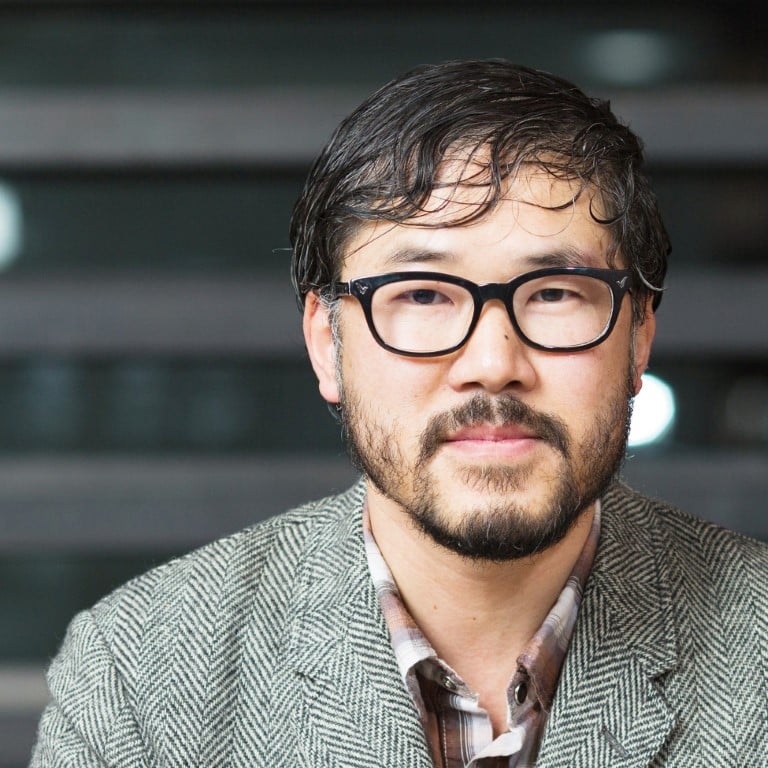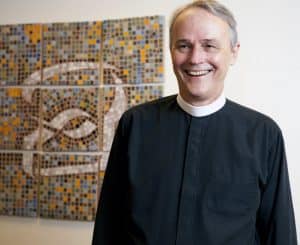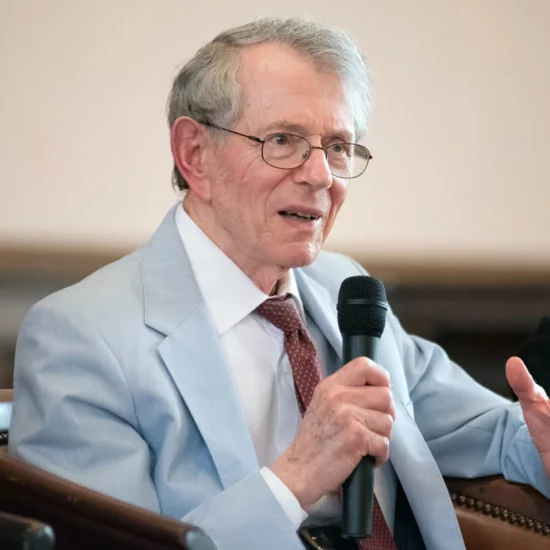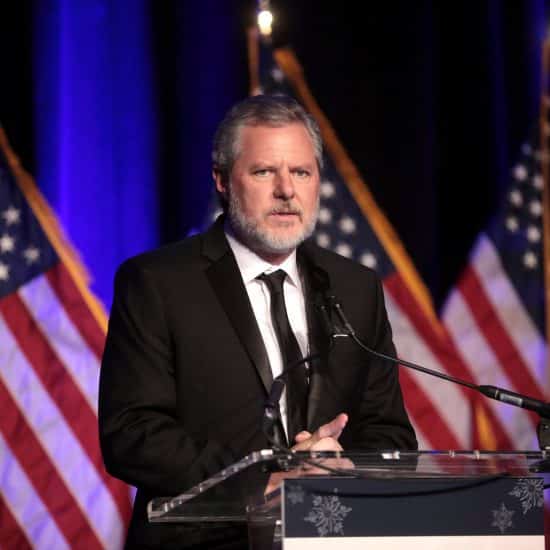

Eugene Cho. Courtesy photo
WASHINGTON (RNS) — Bread for the World, a prominent Christian advocacy group dedicated to ending hunger, has elected Seattle pastor and author the Rev. Eugene Cho as its new president.
It’s a dramatic change for Bread, which is well known in Washington for galvanizing religious groups to protect federal policies that help the impoverished. Recent years have seen the group fight to stop proposed cuts to the Supplemental Nutrition Assistance Program, also known as food stamps, and push for more flexibility allowing the government to provide aid for nations in need.
Cho will be replacing the Rev. David Beckmann, a Lutheran minister who is retiring from his post after shepherding the organization since 1991.

The Rev. David Beckmann. Photo by Joe Portnoy, courtesy of Bread for the World
John Carr, director of the Initiative on Catholic Social Thought and Public Life at Georgetown University and chair of Bread’s board, described Beckmann as “one of the preeminent Christian leaders of our generation,” but insisted Cho is a new leader for a new era.
“(Cho) is a powerful voice in a humble package,” said Carr, who also described Cho as a bridge-builder. “It’s a new generation and different set of experiences: A pastor, a builder, somebody who’s from the West Coast, and somebody who is not anchored in the traditional network of denominations. He emerged as the right leader for Bread at the right time.”
Cho, who is ordained within the Evangelical Covenant Church, achieved acclaim after he and his wife, Minhee, founded Quest Church in Seattle in 2001. He served there for 18 years before stepping down in 2018 and also founded One Day’s Wages, a nonprofit organization dedicated to alleviating extreme global poverty.
“If there’s something that’s concerned me about how the larger umbrella of evangelicalism engages justice work, (it’s) that they see it as a competitor to evangelism … that’s really concerned me,” Cho said. “The great commission is not a competitor to the great commandment.”
Cho said he also plans to draw upon his experience as an immigrant in his new role. Born in Seoul, South Korea, he grew up listening to his parents tell stories of hardships they endured while living in what is now North Korea.
“Every now and then my father shares some stories that it’s hard for me to believe — stories like having to pull up grass from the ground to satisfy hunger pains,” he told RNS.
Cho also has had first-hand encounters with policies that help those who have fallen on hard times. When he found himself unemployed 20 years ago, it was Washington’s Women, Infants, and Children Nutrition Program — a state initiative similar to the federal SNAP program — that helped his family stay afloat.
“We’ve experienced it on a personal level and want to make sure we’re advocating for the programs within our government — both at the local and national level — that can really come alongside those who are vulnerable,” he said.
Carr said Cho’s experiences are different from Beckmann’s but in ways he believes will prove helpful as Bread strives to maintain its status as a bipartisan organization.
“This is somebody who’s built a local church and served people in a pastoral way,” said Carr. “He’s not your typical church bureaucrat — and I can say that, because I’m a former church bureaucrat.”
Cho insists he is not blind to the challenges of working to influence lawmakers on Capitol Hill, particularly in an era marked by partisan rift. He pointed to his new book, “Thou Shalt Not Be a Jerk: A Christian’s Guide to Engaging Politics,” as evidence of his belief in the importance of bipartisan work — even if some dismiss him as “naive.”
As a Christian organization, he said, Bread’s religious roots are “one of the unique things” it brings to the work of political bridge-building, including the “importance of prayer and of spiritual intervention.
“We want to pray for our leaders that we might disagree with, that might have views that are contrary to the things that we believe are so important,” he said. “We’re living in these incredibly divisive times, and maybe in the most minute way I would love for Bread for the World — and even in a more minute way, my work — to be a small little brick among the many, many bricks that need to be built in the coming years and decades that turn the tide of the toxic politics.”






